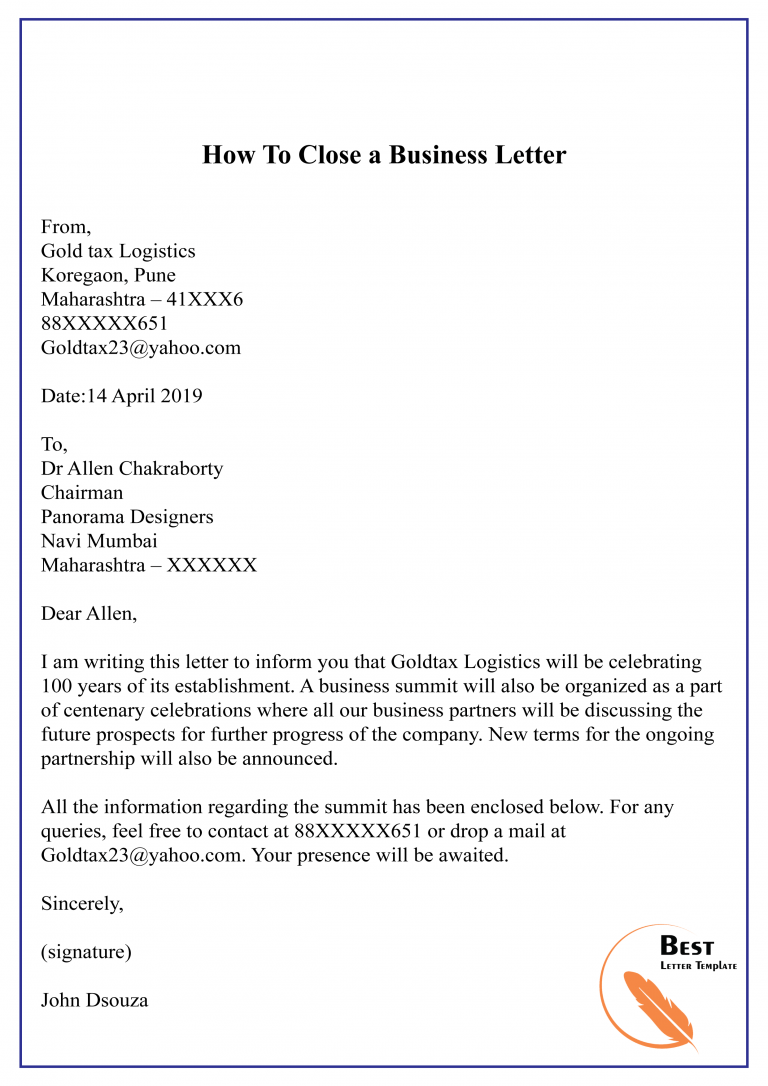
Working from home, also called "remote" work and "telecommuting," is becoming more popular and important as we deal with COVID-19.
Letter endings how to#
Learn how to develop an effective Profile, leverage LinkedIn Groups and Updates, plus more tips for advancing your job search and your career using LinkedIn. How to handle the different types of interviews, including telephone and video, how to prepare for interviews, PLUS Smart Answers to Interview Questions and Smart Strategies to Answer to Behavioral Interview Questions. Make sure you finish your letter on the right note by selecting the ending that best fits your relationship with the reader and the situation.į Guides to Smarter Job Search In the Endįrom beginning to end, your letter should be a cohesive message for your reader. While leaping from closing to your name without an ending is a bit abrupt, sometimes it’s better to end things than choose an ending that is misinterpreted. Simply close your letter, then sign your name. When in doubt, it’s perfectly acceptable to end your letter with nothing. While there’s nothing wrong with this ending, depending on the situation, it can seem threatening, so it’s generally best to use this closing only on pleasant letters. You are clearly stating that you want to and likely will speak with the reader soon. “Speak to You Soon” is very straightforward. It’s usually associated with pleasant and friendly feelings, although “cordial” can be used to indicate strong negative feelings.Īlso, “cordial” is a liqueur, and though your ending probably has nothing to do with alcohol, depending on the situation, you may want to skip the cordial wishes! 9. Though some might say that “Cordially” is a bit stiff and formal, it does indicate that you are sending sincere or deeply felt wishes. You can use “Best” on a business letter as long as your relationship with the reader and the situation merit it. “Best” is an informal ending, though, and should generally only close a letter with people you’re familiar with. It implies that you only have “the best” wishes for the reader and that you hope they experience only good things. Because most readers won’t associate affection with “Regards” or any version of it, this is usually a safe bet to end your letter. One of the many meanings of “regards” includes feeling respect and affection. Regards (or Best Regards, Warm Regards, and Kind Regards) And unlike “Thanks,” there’s less of a chance it lands the wrong way, as people don’t often use “Appreciatively” in the same negative way “Thanks” is sometimes used. If you’ve already thanked the reader once (or even more than once), “Appreciatively” is a fantastic alternative. However, like “Respectfully,” you may need to exercise caution when writing “Thanks.” If, for any reason, the reader doesn’t believe you are thankful, “Thanks” could have a flat landing or even read as sarcasm. “Thanks” and “Thanks Again” are generally great options when you are truly thanking your reader. It’s unlikely to ruffle any feathers or be misinterpreted. Though some may consider it bland or even outdated, “Yours Truly” is a safe, polite, and generally neutral ending for a letter. Sometimes, people use “Respectfully” and its variations (“With Respect,” for example) to indicate that while you respect the reader’s right to whatever it is, you are not on the same page. However, depending on the nature of the letter and your relationship to the reader, it’s possible that “Respectfully” could be read, ironically, as disrespectful. To some, this ending is a step up from “Sincerely” in that you are signaling your respect for the reader. “Respectfully” is another classic ending. SincerelyĪ classic ending, “Sincerely” is as polite and neutral of a letter ending as you can get! When you end a letter with this, you’re signaling that you’re honest, genuine, and straightforward.

Likewise, the ending of a cover letter is very different from how you might end a complaint letter.īecause there’s no one “right” way to end a letter, here are 10 suggestions to help you out! 1.

Letter endings professional#
So, consider your relationship with the recipient and the reason why you’re writing.įor example, if you’re writing a resignation letter to your boss, you’ll likely choose an ending that’s professional and polite, as opposed to mean and spiteful. This “final word” cements the overall message of your letter. Once you’ve summed things up, you can end your letter. I appreciate everything you’ve done, and I hope we can work together again soon.

Thank you for your time, and I look forward to connecting. It can express gratitude, invite the reader to act, or whatever is appropriate for the situation and audience. This is one or two sentences that sum things up. The first part of your letter ending is the closing.


 0 kommentar(er)
0 kommentar(er)
